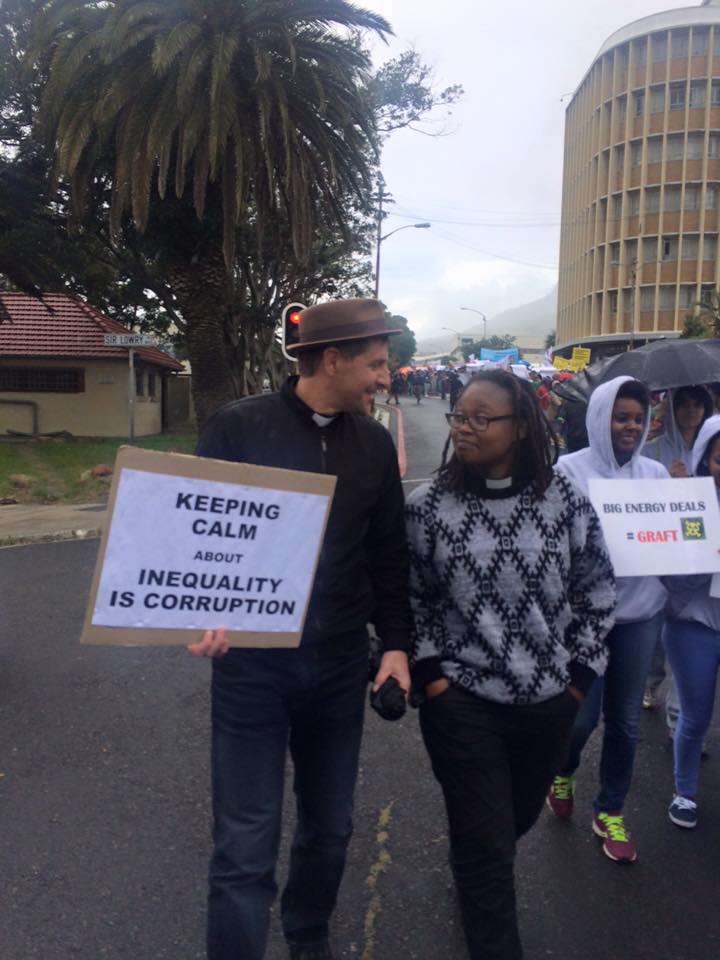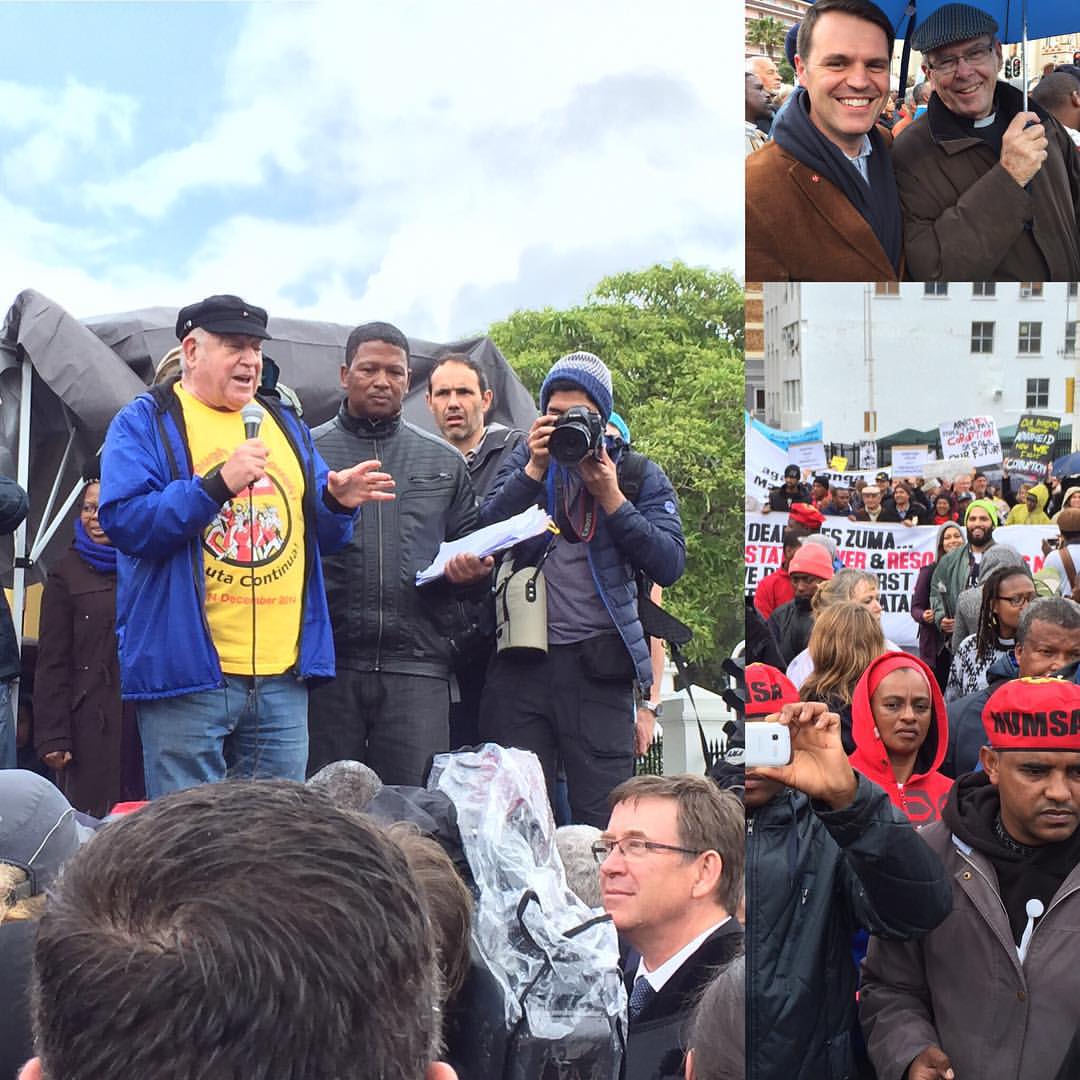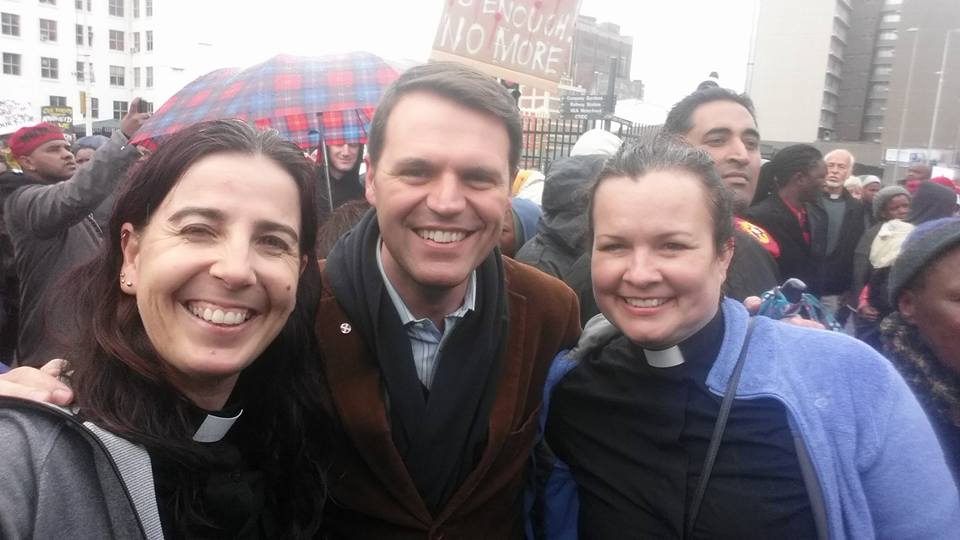#ChurchesUnitedAgainstCorruption - #UAC @SAChurchesUnite why it matters
 Tuesday, October 6, 2015 at 9:43PM
Tuesday, October 6, 2015 at 9:43PM  A week ago (30 September 2015) thousands of Christians gathered in cities across South Africa to show their discontent with increasing corruption in government and business in South Africa. It was beautiful to see women and men from a wide variety of denominations and theological traditions uniting to show that they are not afraid to act against persons who use prominence or power in politics or economics for personal and unjust gains. I was pleased to participate in the gathering in Cape Town, and know of friends who participated in Durban and Johannesburg gatherings.
A week ago (30 September 2015) thousands of Christians gathered in cities across South Africa to show their discontent with increasing corruption in government and business in South Africa. It was beautiful to see women and men from a wide variety of denominations and theological traditions uniting to show that they are not afraid to act against persons who use prominence or power in politics or economics for personal and unjust gains. I was pleased to participate in the gathering in Cape Town, and know of friends who participated in Durban and Johannesburg gatherings.
Of course there are various forms of corruption - persons who pay bribes, and persons who solicit them, so that deals can be done. These drive up the costs of products and services, meaning that less can be done for the common good. Fewer schools can be built, fewer hospitals staffed, fewer meals dispensed, fewer persons brought to justice, fewer crimes are solved, fewer communities are safe, and it is the poor and the powerless who suffer first, and who suffer most.
Someone asked me whether marches like this matter. Of course on some level they don't. In truth, nobody will admit to being 'for corruption', even the most corrupt have a public rhetoric against corruption - it is what they need to retain the trust and inactivity of those who allow them to remain in office, or conduct corrupt business.
On the other hand events like this are of critical importance. They matter because we cannot be silent in the midst of injustice. Events such as these matter because we are showing that more and more sectors of South African society are impatient with the injustices and inequalities that are upheld by corrupt persons and corrupt practices. Events such as these matter because they show that we have a moral conscience, and that people from different religious groupings, and different traditions, can stand together. They matter because they show that we are not powerless or voiceless. They matter because they show that we are citizens who are engaged.
importance. They matter because we cannot be silent in the midst of injustice. Events such as these matter because we are showing that more and more sectors of South African society are impatient with the injustices and inequalities that are upheld by corrupt persons and corrupt practices. Events such as these matter because they show that we have a moral conscience, and that people from different religious groupings, and different traditions, can stand together. They matter because they show that we are not powerless or voiceless. They matter because they show that we are citizens who are engaged.
So, I would encourage you to act. Recognise that you have a right, even a responsibility, to speak out when things are wrong. Call those who abuse their office or position in business for unjust means to account. Remind elected officials that they are civil servants of the people, not civil masters. Remind businesses and business people that we, the consumers, are the ones who hold the wealth that allows them to operate, and if they will not do so for the common good we can exercise our right to choose someone or something else.
If you are a follower of Jesus it is important to remember that submission to his Lordship has political, economic and social consequences. What we believe must change how we live - and it should always be for the common good. This is the way of the servant King. As Stanley Hauerwas reminds us, the church does not have a social ethic, it is a social ethic - we are to become what we believe, our story, our witness, our worship, is to reflect what we believe and what we hope for.

I would like to invite you to visit the Churches United Against Corruption website, or consider joining the campaign Unashamedly Ethical.



Reader Comments